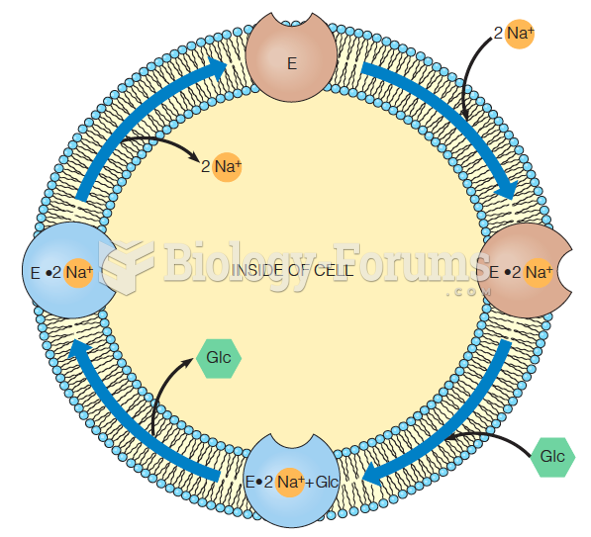|
|
|
Human kidneys will clean about 1 million gallons of blood in an average lifetime.
The average office desk has 400 times more bacteria on it than a toilet.
Hip fractures are the most serious consequences of osteoporosis. The incidence of hip fractures increases with each decade among patients in their 60s to patients in their 90s for both women and men of all populations. Men and women older than 80 years of age show the highest incidence of hip fractures.
Egg cells are about the size of a grain of sand. They are formed inside of a female's ovaries before she is even born.
Patients should never assume they are being given the appropriate drugs. They should make sure they know which drugs are being prescribed, and always double-check that the drugs received match the prescription.







